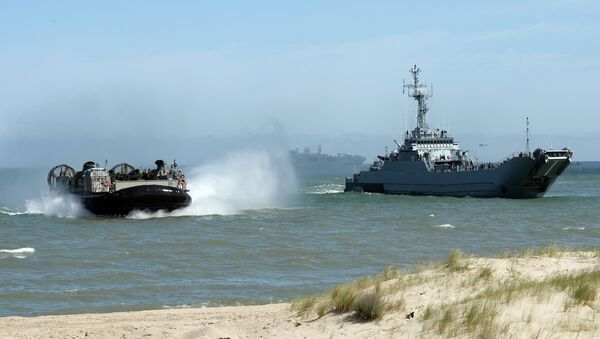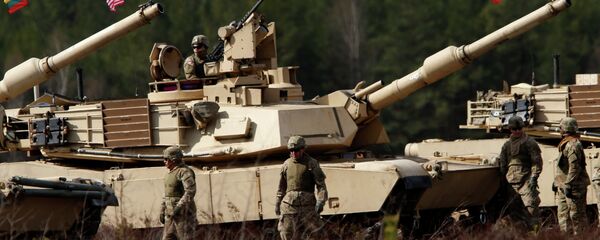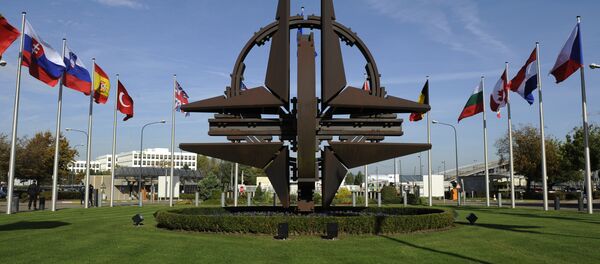On Thursday, NATO foreign ministers finalized an agreement which will create a significant increase of military troops in the Baltic. According to British Foreign Secretary Philip Hammond, new deployments could include up 3,500 troops.
"It looks like there could be four, maybe five battalions…the point of these formations is to act as a trip wire," he told reporters.
"It isn’t intended to be aggressive."
But while the move has drawn criticism from Moscow as an unnecessarily aggressive buildup along Russia’s borders, NATO intends to do even more in the future.
"We will discuss how NATO can do more to project stability," NATO Secretary-General Jens Stoltenberg told reporters on Thursday, "and at the same time address how NATO can continue to adapt to a more assertive Russia to find the right balance between defense and dialogue."
For the moment the alliance seems to be leaning heavily toward “defense,” but according to Douglas Lute, the US permanent representative to NATO, this is largely Russia’s fault, for failing to engage in a cooperative dialogue.
"[The Kremlin] has thrown out the rulebook," Lute said, according to Deutsche Welle. "This is not the predictable partner we thought we had."
The alliance continues to justify military buildup under the guise of peace, a contradiction mirrored by Gen. Sir Richard Shirreff, former Deputy Supreme Allied Commander in Europe for NATO, on Tuesday. The former military leader declared that a military buildup in the Baltics is necessary to avoid nuclear war.
"The chilling fact is that because Russia hardwires nuclear thinking and capability to every aspect of their defense capability, this would be nuclear war," he told BBC Radio 4.
"[NATO] should raise the bar sufficiently high for any aggressor to say it is not worth the risk," he added. "I would argue the bar is not high enough at the moment."
The new agreement also opens the door for Montenegro to join NATO.
"It is our expectation that the allies would finalize ratification as soon as possible, so that, in mid next, Montenegro would become a fully fledged member of the alliance," Prime Minister Milo Djukanovic said, according to DW.
Writing for AntiWar.com, Jason Ditz points out that Montenegro’s inclusion is also aimed at asserting power against Moscow.
"Even the decision to invite tiny Montenegro to the alliance was seen primarily as being about thumbing their nose at Russia for criticizing the continued expansion of NATO deeper into Warsaw Pact territory."





